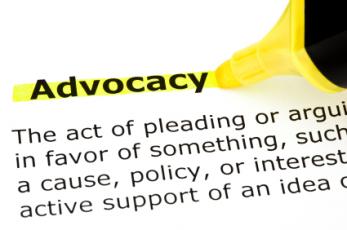16 Days of Activism Against GBV 2014 campaign theme launched: militarism
Mon 30 Jun 2014
The Center for Women's Global Leadership has announced the 2014 theme for the 16 Days of Activism Against Gender Based Violence (GBV). The 16 ...

The Center for Women's Global Leadership has announced the 2014 theme for the 16 Days of Activism Against Gender Based Violence (GBV). The 16 Days Campaign runs between 25 November (International Day for the Elimination of Violence Against Women; also White Ribbon Day) and 10 December (Human Rights Day) each year. It emphasises gender-based violence as an international human rights violation.
The 2014 theme From Peace in the Home to Peace in the World: Let’s Challenge Militarism and End Violence Against Women aims to focus on the intersections of gender-based violence and militarism.
Campaign coordinator the Center for Women’s Global Leadership says the culture of militarism "builds on and protects systems of power by controlling dissent and using violence to settle economic, political and social disputes." It "draws on and perpetuates patriarchal models of political, economic, and social domination of people by a small number of elites and privileges violent masculinity as acceptable behaviour." To address the intersection of GBV and militarism, the campaign will focus on three priority areas:
Violence Perpetrated by State Actors
This will target the violence and the threat of violence used by state actors in achieving social, economic and political control over individuals and communities. Campaigners are encouraged to:
- Document and publicise instances of violations against human rights defenders, journalists, indigenous and marginalised groups.
- Engage with members of your community and with policy-makers who are willing to listen and who work at the local, national, international and other influential levels to make ending gender-based violence a priority and success marker for national development.
- Strengthen and support the work of Women Human Rights Defenders and demand accountability from State and non-State perpetrators of violence through national, regional, and international mechanisms.
Proliferation of Small Arms in Cases of Intimate Partner Violence
This will target the use of small arms as an extension of normalisation of violence, violent masculinity and militarism, highlighting the significant risk for women experiencing domestic and intimate partner violence. Campaigners are encouraged to:
- Support disarmament of perpetrators of intimate partner violence and stronger regulation of small arms. Work with your communities and policymakers to require stronger background checks, gun storage, and linking the occurrence of intimate partner violence with removal of guns from homes.
- Encourage conversation on intimate partner violence with family, friends, and community members in order to remove stigma, protect, and support those who report it.
- Advocate for improved training and response by local law enforcement that adequately addresses intimate partner violence.
Sexual Violence During and After Conflict
This will target the various forms of sexual violence used to fuel conflict between ethnic and ideological groups and international power holders as the basis of interventions and occupations. Campaigners are encouraged to:
- Build local and international awareness by writing and speaking on the occurrence and stigma of sexual violence or use your skills to heighten the sense of urgency around sexual violence in your community.
- Encourage policymakers to make addressing the crime of sexual violence in conflict a priority and to support local, national, and international prevention, protection, and justice mechanisms and women’s leadership in peace processes.
- Work with men and boys who believe in gender equality to end gender-based violence in conflict and work together to involve more of their peers in ending gender-based and sexual violence.
The campaign is open to participants engaging in action on these issues in ways that are relevant to their specific context. A Take Action Kit which contains resources to support activities is available on the campaign website.
Get connected with the campaign:
- Email: 16days@cwgl.rutgers.edu
- Facebook: http://www.facebook.com/16DaysCampaign
- Flickr: http://www.flickr.com/photos/16dayscampaign
- Join the 16 Days Listserv:https://email.rutgers.edu/mailman/listinfo/16days_discussion
- International Campaign Calendar: http://16dayscwgl.rutgers.edu/campaign-calendar
- Tumblr: http://cwgl.tumblr.com
- Twitter: @16DaysCampaign
Image: iStock


